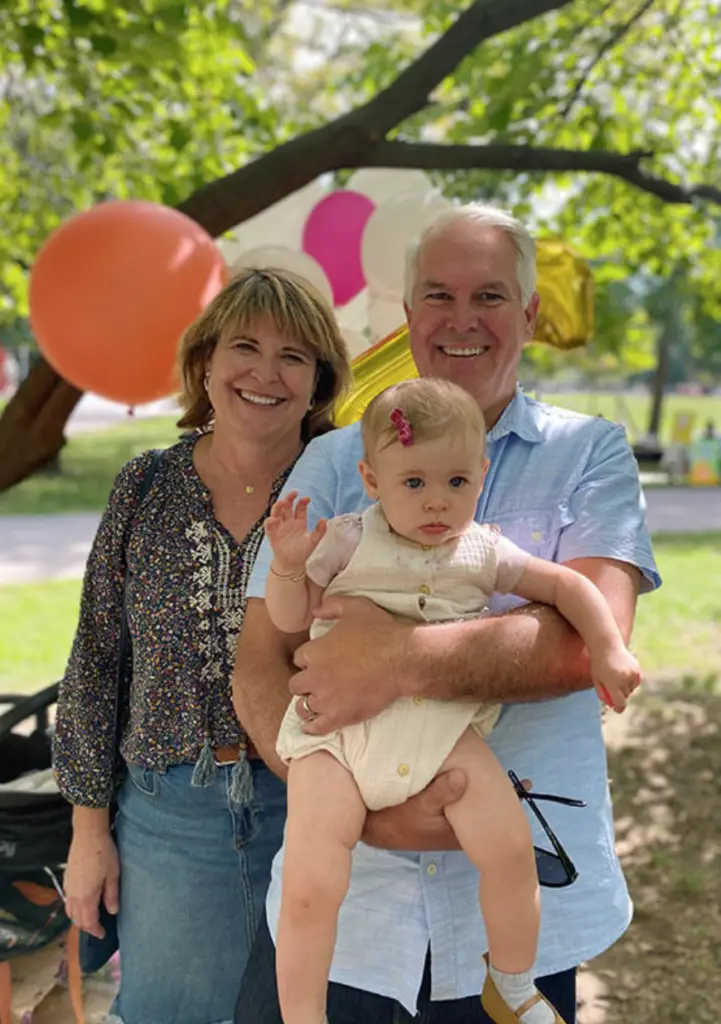As a trainer and coach for Christian educators in how to reveal Truth in their classroom instruction, I am well aware that faith formation does not happen solely by way of curriculum. There is a triangular set of influences for how children develop a worldview about God’s existence, the source of all things, and what happens when we die.
Influences on a Faith Heritage
The nature of relationships and time spent with other people have a huge inspiration on how children interpret the world around them. Actions of others and activities in which children are personally involved also forge fundamental beliefs about right and wrong and what is essential in life. Similarly, intentional teaching of principles and precepts impact how children interpret their experiences in the world.
While studying the book of 2 Timothy this time, I was struck by the influence relatives had on Timothy’s faith formation. Paul urges his protégé, Timothy, to continue in the things he has learned despite the deceitful men and imposters that will try to persuade him otherwise. Paul refers directly to the faith heritage that Timothy carries with him.
Heritage is something transmitted or acquired from a predecessor. Timothy’s Grandmother Lois and his mother Eunice first fostered his sincere faith heritage. “For I am mindful of the sincere faith within you, with first dwelt in your grandmother Lois, and your mother Eunice, and I am sure that it is in you as well” (2 Tim 1:5, NASB). This faith heritage was given intentionally. The heritage did not develop simply by a blood relationship, but rather by purposeful instruction by blood relatives. “From childhood, you have known the sacred writings which are able to give you the wisdom that leads to salvation through faith which is in Christ Jesus” (2 Tim 3:15).

As a parent and grandparent, I am responsible for developing a faith heritage for my children and grandchildren. I have the privilege of being invited into my adult children’s lives to be a part of my grandchildren’s lives. This privilege should count for more than hugs, snuggles, and play, although they are some of the sweetest things to experience on earth! My privileged participation with these littles is a golden opportunity with heavenly consequences.
In his book Too Small to Ignore, Wes Stafford describes how heaven and hell both have intentions for every child from the moment of birth.
Therefore, those who work with and care for little ones are not just filling time, but instead are part of God’s strategic plan in the spiritual formation of a child. Moreover, those who work and care for bigger ones, elementary-age children, tweeners, teens, or young adults, are also part of God’s strategic plan in others’ spiritual formation.
How to Transmit a Faith Heritage
Transmitting a faith heritage to children can take place in various ways as a family member or educator. First, build a positive relationship with children. Spending time doing life together builds familiarity and natural conversation.
Secondly, model for children how to interact with God’s word and God himself. Do the children see you reading and studying the Bible? Do they hear you talking positively about God and the Bible? Do others hear your prayers?
Thirdly, be intentional in helping children know Scripture and Truth. Timothy’s grandmother and mother helped him know the sacred writings and understand the reasons why knowing these were important.
God created people with amazing brains. Even 18-month-old babies can learn fundamental truths about God in developmentally appropriate ways. A common way to introduce a biblical worldview is by using First Catechism: Teaching Children Bible Truths, or The New City Catechism for Kids: Children’s Edition. Little ones have no trouble memorizing nursery rhymes and lyrics to popular songs. Memorizing a Bible truth every few days is similar. The simple questions and short answers can provide a structure and vocabulary appropriate for talking about God.
Church services and children’s Sunday school classes typically provide instruction for Bible literacy. Bible literacy prepares children to recognize the main characters and recall the sequence of events for important biblical accounts recorded in God’s word. For a deeper understanding of biblical Truth and the reasons why we can be assured God is real and the Bible is true, I recommend using some of the works authored by Natasha Crain. She has written several books that guide parents on having conversations with kids about God and Jesus. One of her most recent publications is Talking with Your Kids about God: 30 Conversations Every Christian Parent Must Have.
I am thankful for the wisdom the Lord has provided to others for me to use. I am grateful for the evidence of lasting family influence on worldview found in 2 Timothy. May the Lord bless you and me as we begin or continue to transmit a faith heritage.
Blessings to You,
Annie
Never miss a blog and stay up to date with all that Transformed PD is doing by subscribing to our monthly newsletter!



8 Responses
Great word. Some other good resources for parents and grandparents are available at http://www.renewanation.org. Keep up the good work.
Thank you for sharing these resources, Glen!
Annie, Continue to put the cookies on the shelf where they can be reached. My mother signed me up in 4th and 5th grade with the Bible Memory Association. I was given a small booklet with Bible verse passages to memorize divided into weeks. Then, I had to recite those passages at the end of the week. When successful I received small rewards to encourage me. At the end of the year I was able to attend a BMA camp for free when I completed the booklet. That foundation in Scripture became a tool to guide my path in life. Not only can I quote passages memorized from that age, but the exercise enhanced the agility to memorize any subject. Most importantly, the exercises of memorization anchored the practice of utilizing Scripture as the final authority for everything in my life. Thank you, Lord!
Randy, your mother’s intentional efforts to help you hide God’s word in your heart is evident. I have learned a great deal from you about how to model Christ-like living. You witness and application of Truth has taught me greatly. May the Lord continue to bless you, Annie
The grandparent s Brigade for God is our greatest calliing. Help us Fathe God
Influencing for Jesus never ends!
Annie, thank you for this reminder of one of the reasons we moved to PA! When our oldest granddaughter was 3-4, she loved My LIttle Ponies and liked to play guessing games with me to see how much I knew about them, which wasn’t very much at the time! One night she was telling me about their Cutie Marks and that led to a conversation about if people had cutie marks what would they look like. We went through the family and she determined their marks based on their likes or personalities. I was humbled to tears when she said, “Mimi, your cutie mark would be a cross for Jesus because you love him and talk about him all the time.” Her observation made me all the more focused on intentionally sharing my love for God with my grandchildren.
Your love for Christ, and your family, is ALWAYS evident, Maribeth!